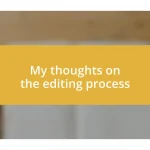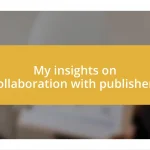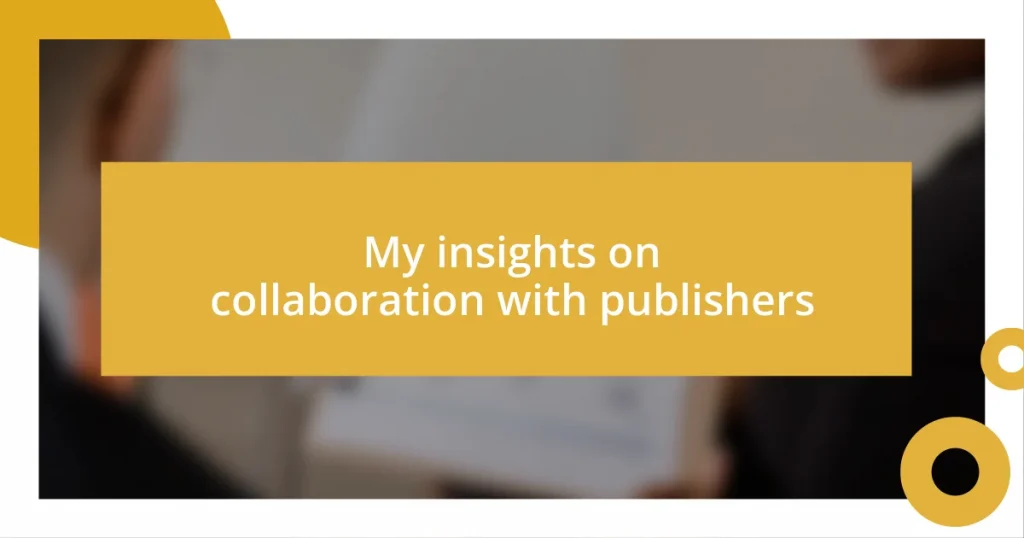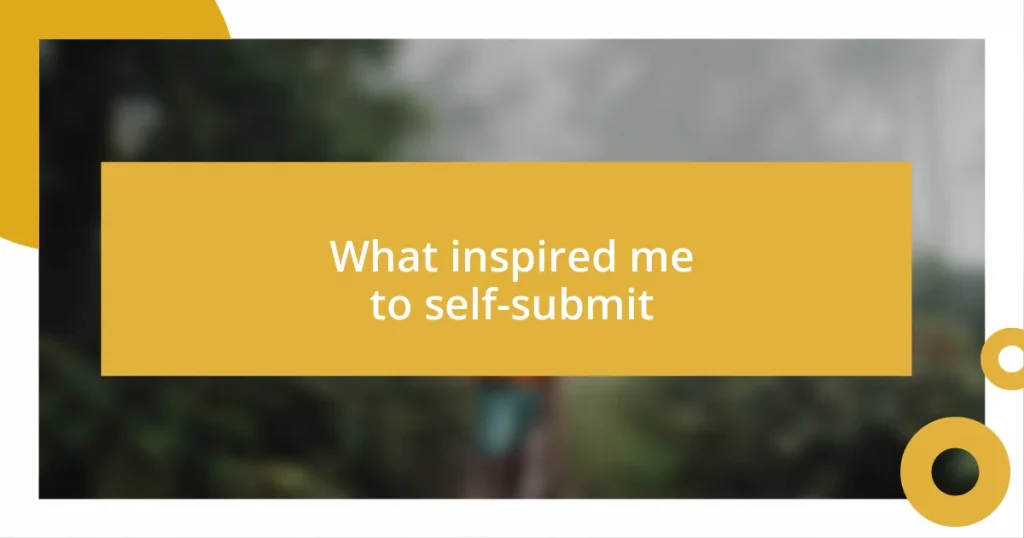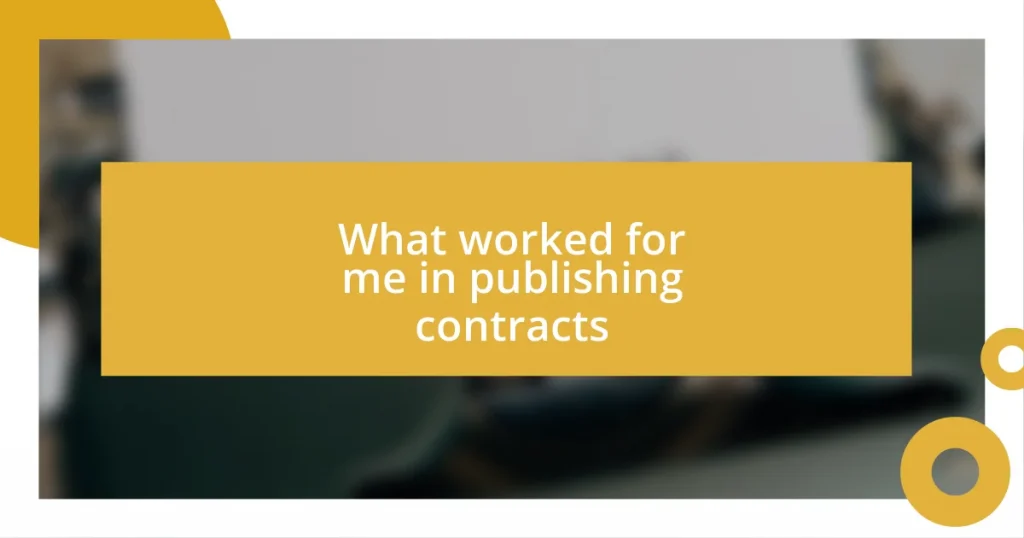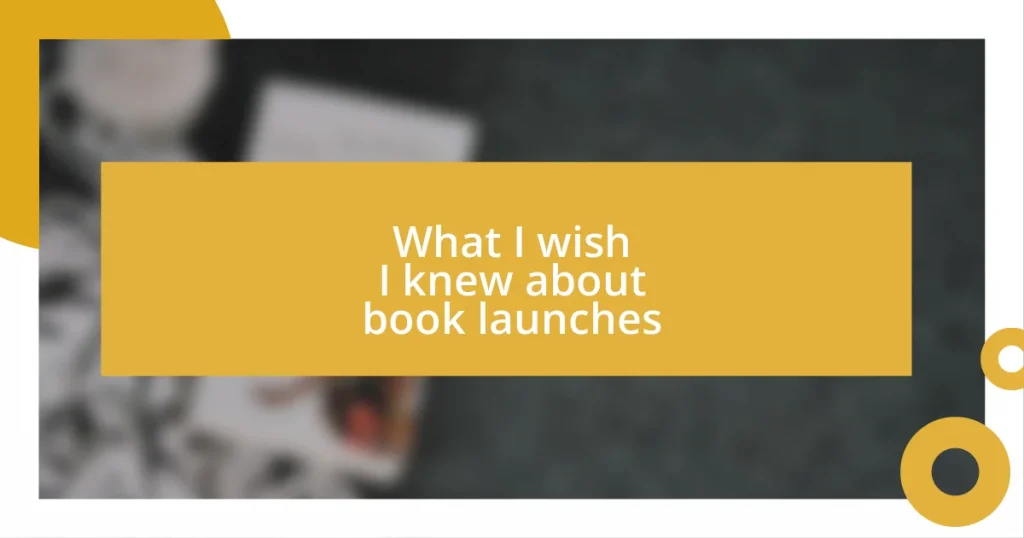Key takeaways:
- Effective communication is essential for successful collaboration, preventing misunderstandings and fostering trust.
- Building lasting relationships with publishers involves understanding their goals, maintaining regular contact, and co-creating experiences.
- Negotiations should emphasize listening and establishing rapport, transforming potentially tense discussions into collaborative opportunities.
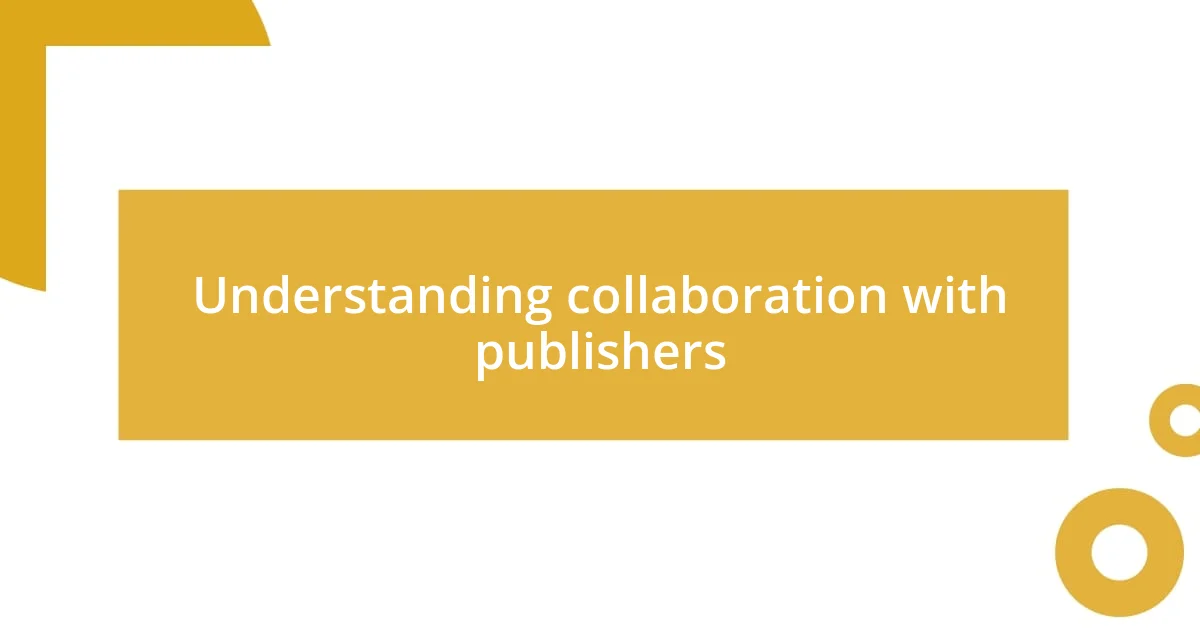
Understanding collaboration with publishers
Collaboration with publishers isn’t just a transactional relationship; it’s about mutual growth and shared vision. I remember my first partnership—there was an initial excitement mixed with nervousness. How would their audience respond to my work? Through that collaboration, I learned that understanding a publisher’s goals and values is crucial. It’s all about aligning your creative intentions with theirs.
When I consider my experiences, one striking lesson stands out: communication is the lifeblood of collaboration. A few years ago, I was part of a project where we didn’t establish clear lines of communication at the start, and it led to misunderstandings that could have been easily avoided. Have you ever been in a similar situation? I certainly learned the hard way that transparency and consistent dialogue can turn potential conflicts into opportunities for stronger partnerships.
Finally, it’s essential to appreciate the power of feedback in these collaborations. I often receive insightful critiques that refine my work, making it more appealing to a wider audience. It can be daunting to hear critique, but I’ve found that embracing feedback not only elevates the final product but also strengthens my relationships with publishers. Isn’t it fascinating how collaboration can enrich our personal and professional journeys?
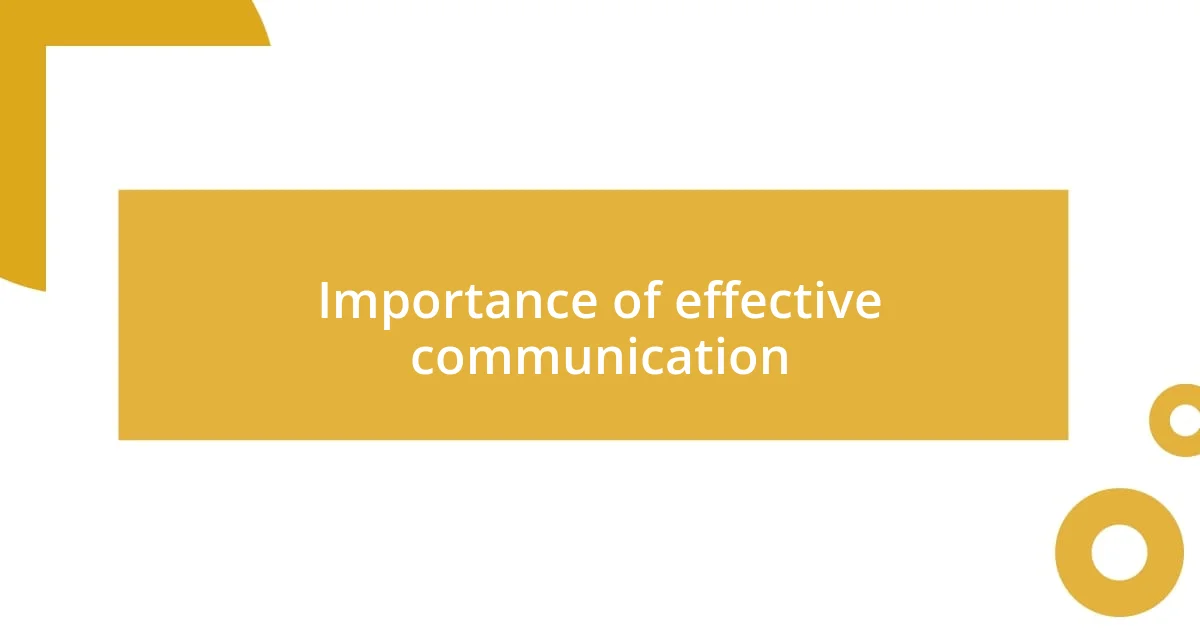
Importance of effective communication
Effective communication stands at the heart of successful collaboration with publishers. I’ve experienced firsthand how a simple misunderstanding can spiral into larger issues, impacting both timelines and trust. In one instance, I was working on an article where I interpreted the publisher’s guidelines differently than they intended, resulting in a back-and-forth that delayed the process. What I took away from that was a deep appreciation for clear communication—it’s not just about talking, but ensuring both sides are truly on the same page.
- Establishing open channels of communication fosters a culture of trust.
- Regular check-ins can help address concerns before they escalate.
- Clarity in expectations minimizes the risk of misinterpretations.
- Being receptive to feedback encourages a collaborative spirit.
- Sharing insights promptly allows for real-time adjustments and improvements.
In my collaborations, I’ve noticed that it’s often the little things—like a quick email or a casual chat—that can lead to monumental shifts. I remember a late-night messaging session where I felt encouraged to share an idea that seemed too bold at the time. That spontaneous exchange not only invigorated our project but also deepened our connection. Effective communication can truly be a game-changer; it’s about more than just relaying information—it’s about building relationships and understanding one another’s vision.
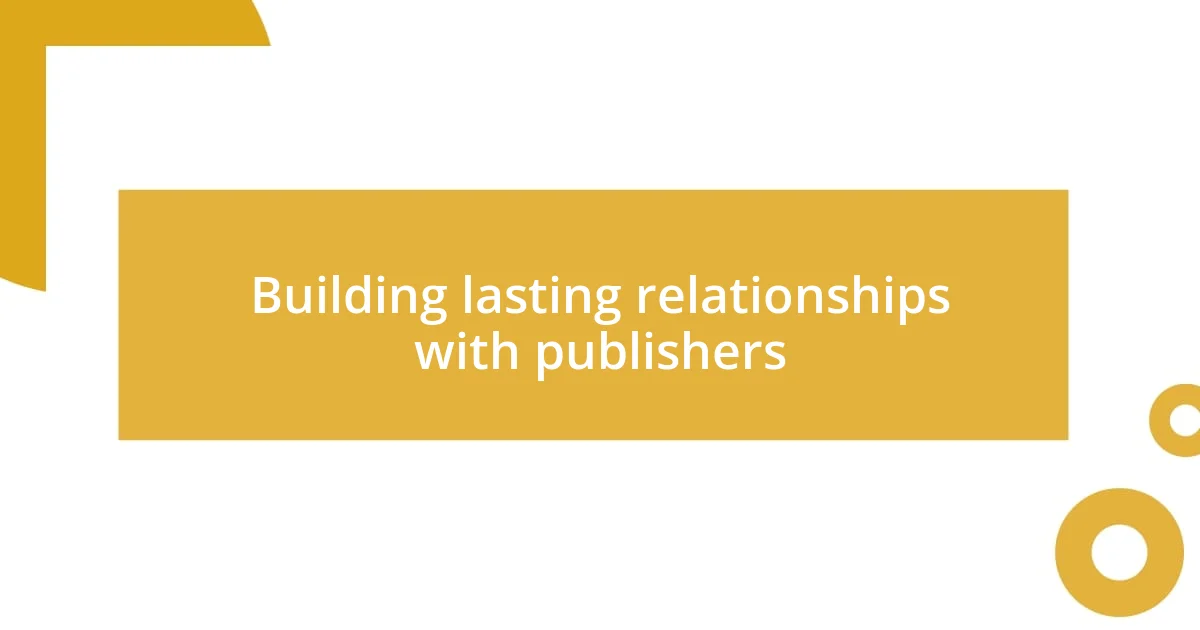
Building lasting relationships with publishers
Building lasting relationships with publishers requires effort and a deep commitment to understanding one another. I remember a project where I made it a point to learn about the publisher’s history and their previous successes. This not only helped me tailor my work to fit their brand but also sparked conversations that went beyond mere project discussions. Suddenly, I wasn’t just another contributor; I became a partner in their journey, which laid a strong foundation for years of collaboration.
Trust emerges as a cornerstone for long-term partnerships. In my experience, reaching out regularly, even when there isn’t an immediate project on the table, helps maintain a sense of connection. Once, I sent a friendly check-in email to a publisher I hadn’t collaborated with in a while, simply sharing an article I thought they’d enjoy. This small gesture opened the door for future projects, reminding us of the value of keeping the relationship alive. I believe these moments of genuine engagement often lead to unexpected opportunities.
Consider the impact of shared experiences and co-creation. When developing a joint project, I always prioritize brainstorming sessions that allow both my voice and the publisher’s vision to shine. There was a time I hosted a retreat with a publisher—just a small, focused group to discuss our aspirations. Those candid discussions transformed our working relationship, leading to projects that felt truly authentic. It’s evident to me now that building lasting relationships isn’t just about contracts; it’s about creating memories and experiences together.
| Key Aspect | Importance |
|---|---|
| Understanding Each Other | Aligns creative intentions and fosters mutual respect. |
| Trust Building | Maintains connection and opens doors for future collaborations. |
| Shared Experiences | Creates authentic partnerships and memorable projects. |
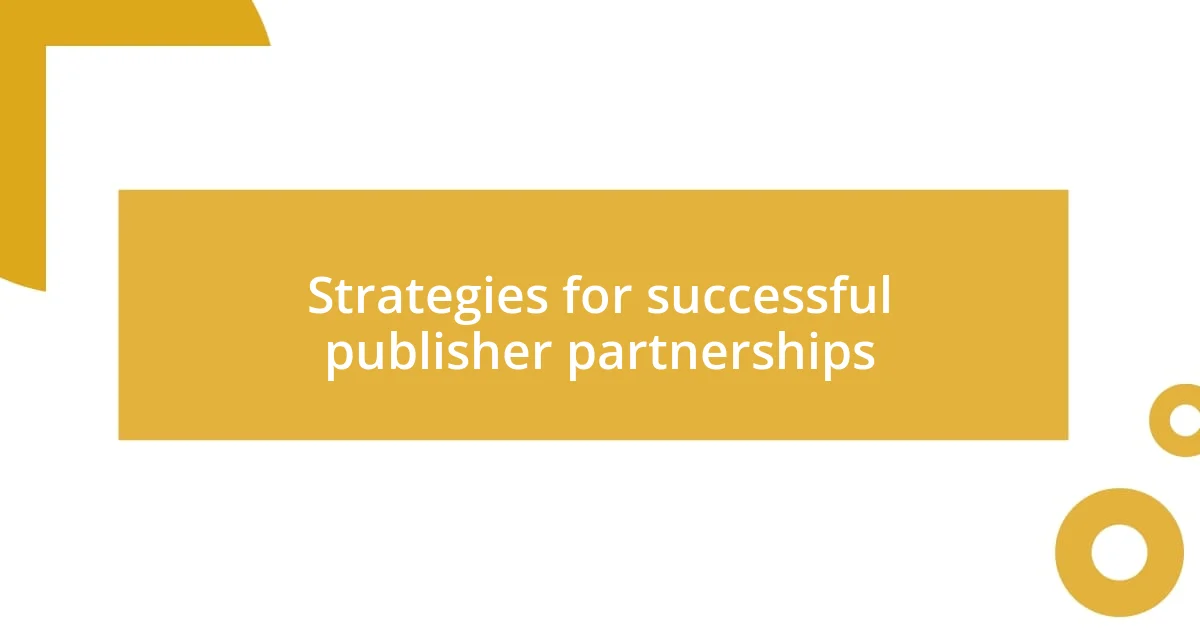
Strategies for successful publisher partnerships
Understanding the publisher’s goals is vital for a successful partnership. I once joined a collaborative project where the publisher’s primary aim was to expand into a new demographic. By taking the time to research their target audience and internal objectives, I was able to tailor content that resonated deeply with their vision. Have you ever considered how aligning your goals can elevate your work? It’s astonishing how finely-tuned collaboration can lead to breakthroughs that satisfy both parties.
Flexibility in your approach can also be a game-changer. I recall a time when a publisher requested significant alterations to a draft just before the deadline—a request that would have thrown most people into a panic. However, I decided to embrace this challenge, viewing it as an opportunity to innovate. By remaining adaptable and responsive, I not only met their needs but delivered a final piece that exceeded expectations. Isn’t it incredible how being open to change can transform potential setbacks into triumphs?
Finally, celebrating shared successes cannot be overlooked. After completing a particularly challenging project, I suggested we host a small virtual celebration to recognize everyone’s hard work. To my surprise, this simple gesture brought everyone closer together and reinforced our commitment to future collaborations. How do you acknowledge wins in your partnerships? I firmly believe that recognizing achievements fosters a culture of appreciation, which can enhance collaboration and lead to even greater successes in the long run.
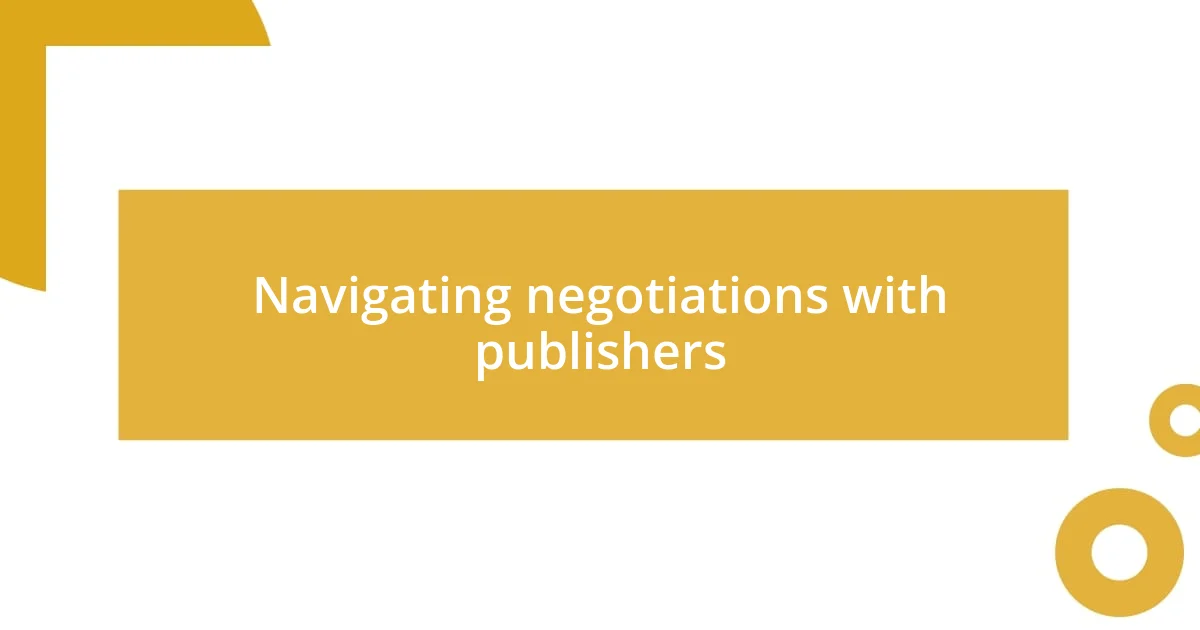
Navigating negotiations with publishers
Negotiating with publishers can feel daunting, but I see it as an opportunity to find common ground. When I approached a recent contract renewal, I took time to outline the value I had brought to past projects. Sharing specific metrics and successful campaigns transformed what could have been a tense discussion into a collaborative brainstorming session. Isn’t it fascinating how data can shift perspectives and open new avenues for negotiation?
One vital strategy I’ve learned is the art of listening. During one negotiation, instead of just presenting my terms, I focused on understanding the publisher’s constraints and aspirations. Their reluctance was rooted in budget concerns, which led me to propose a tiered payment structure. This approach not only alleviated their worries but fostered a sense of partnership, showing them I was invested in our mutual success. Have you ever considered how listening can be a powerful tool in negotiations?
Building rapport is equally important. I remember a negotiation where sharing a personal story about my past experiences in publishing broke the ice. It opened a dialogue that moved beyond business talk and cultivated a more human connection. It’s amazing how such exchanges can change the tone of what might feel like a transactional conversation into one filled with trust and understanding. Wouldn’t you agree that forging personal connections can pave the way for smoother negotiations?
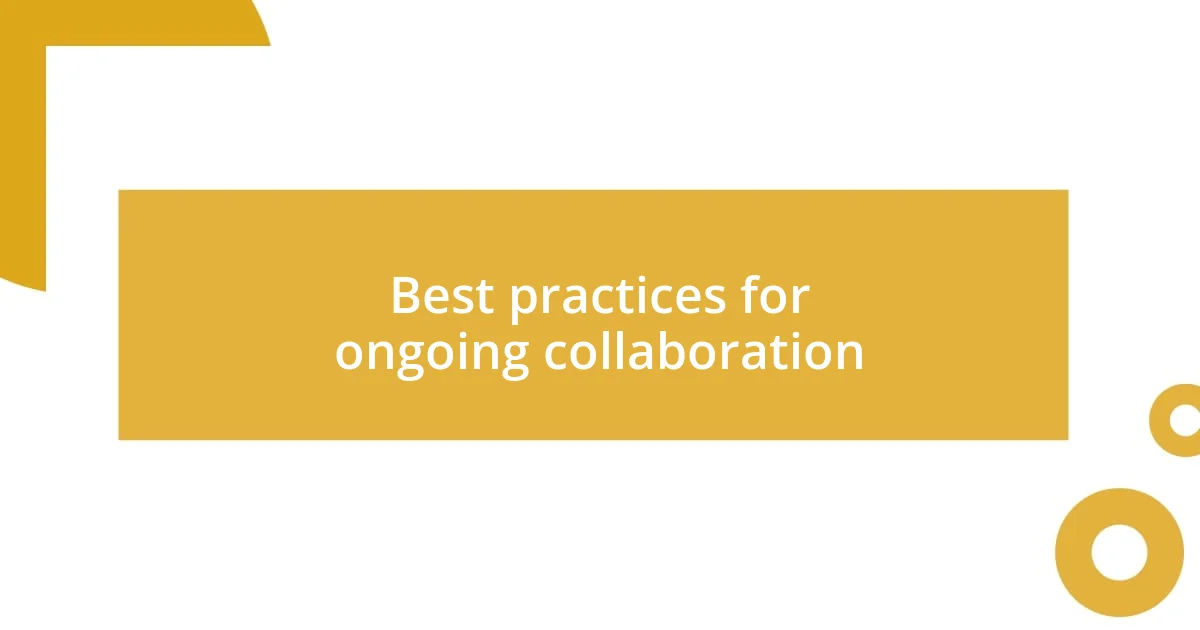
Best practices for ongoing collaboration
Effective communication is the cornerstone of ongoing collaboration. During one of my projects, I set up weekly check-ins with the publisher’s team. These meetings not only kept everyone aligned but also created a space for open dialogue where ideas could flourish. Have you ever thought about the impact regular communication can have on a project’s momentum? It’s remarkable how a simple conversation can quell uncertainties and inspire innovative solutions.
Another best practice that I’ve found invaluable is creating shared goals. I remember a collaboration where we defined specific milestones together, which kept us motivated and accountable. This common mission served as a guidepost, helping us navigate challenges while staying focused on what truly mattered. How often do you take the time to map out shared objectives with your partners? It’s such a small step that can lead to extraordinary alignment in vision and effort.
Lastly, showing appreciation for each team member’s contributions can work wonders. In a recent collaboration, I made it a point to acknowledge individual efforts, whether through a quick note or shout-out during team meetings. This not only uplifted morale but also reinforced our partnership’s strength. Don’t you think fostering gratitude cultivates a supportive environment that enhances collaboration? Celebrating every contribution, big or small, helps ensure that everyone feels valued and connected to the larger goal.






